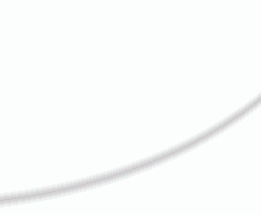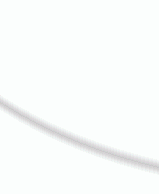




2012年度學長計劃
目標
中大新聞與傳播學院舉辦新一屆的學長計劃,希望透過學長與同學之間的互動溝通,讓學長擔當模範、導師、兄姊和朋友等角色,與同學分享心得,讓同學在個人心智、職業選擇、人生態度和學業等方面有所成長,並從而建立良好師友關係。
學長計劃於2007年1月首辦,學長及學員均讚賞學長計劃能促進校友與本科生的溝通,而透過學長的成功之道及經驗分享,同學獲益良多。
學院邀請表現傑出的校友擔任學長,他們在業界擁有豐富經驗,必能為同學提供寶貴指引或意見。而學員為本科生,一名學長可領導一至三名學員。
學員的得著
- 了解行業實際運作情況,對新聞、公關、廣告及其他專業有更深入認識
- 學長擁有豐富的經驗及智慧,可為學員提供職業選擇及籌劃的指引
- 從學長的人生目標、處事智慧、思考方法中得到啓發
- 擴闊圈子及建立良好人際關係網絡
學長的得著
- 與新傳學院保持緊密聯繫
- 了解新一代學子的夢與理想,從中得到啓發,與時並進
- 與新一輩人材建立良好關係
- 以經驗與智慧培育師弟、師妹,當中滿足感,非其他東西可比量
未來活動
1. 學長及學員均應參加將於2012年2月舉辦的學長計劃啟動禮暨學長、學員首次聚會。詳情學院將通知大家。
2. 學員應主動邀請學長一同參與學院及校友會的活動,例如:校友會晚宴、中大校友日、專題講座、工作坊等等,以聯繫感情。
3. 在整個學長計劃內,建議學員主動約見學長,並安排最少三次聚會。
4. 聚會形式不拘,建議:午餐、下午茶、晚餐等飯聚、參觀學長辦公地點、或帶學長參觀校園等。
給學長的建議
1. 通過電郵、電話及聚會等形式,與學員保持溝通。
2. 聆聽學員的分享,給予真心的鼓勵。
3. 告知學員最好在哪些時段聯絡您。
4. 尊重學員的私隱,不隨便洩露他們與您分享的事情。
5. 避免宣傳個人宗教及政治立場。
6. 當學員是朋友、弟妹,不要以上司的身份或態度對待他們。
7. 讓學員分擔聚會的費用。
給學員的建議
1. 尊重學長。
2. 主動定期透過電郵、電話或問候卡接觸學長,保持聯繫,但應在正常社交時間,即早上九時至晚上九時內聯絡學長。
3. 應先約定與學長見面的時間,並準時出席各項活動。
4. 建議預先想好聚會傾談的主題,主動向學長尋求意見或指引。
5. 記錄所學到的要點,以作日後參考。
6. 與學長傾談時,保持應有的禮貌,切忌過於情緒化。
7. 尊重學長的私隱,不要打聽學長的薪酬、公司利潤或其他私人問題。
配對安排
學院將依據同學有興趣投身的行業和嗜好及學長的職業和其他要求作出配對。為使配對得以順利進行,同學須填寫個人資料紀錄,以便跟進及安排。收集的資料只作配對用途,本院絕不會公開有關資料。配對成功的同學的資料將轉交他的學長。
查詢
電話:3943-7522 (林小姐)
電郵:alumni-com@cuhk.edu.hk
-------------------------------------------------------------------------------------------------------------------------------------------------
School of Journalism and Communication
Journalism and Communication Alumni Association
Mentorship Program 2012
Objectives
The Mentorship Program is jointly organized by the School of Journalism and Communication and its Alumni Association. Through the mentor-mentee connections, students are given special opportunity to closely associate with the working professionals (mentors) who can act as their role models, advisors, brothers/sisters and friends. Students can make good use of the program to learn and fully develop their mentality, virtue and potentials to excel in their academic/future professional endeavor. We also hope that the Mentorship Program can establish a long-term and mutually-beneficial relationship between mentors and mentees.
The Mentorship Program was first launched in 2007. Both mentors and mentees commented that the Mentorship Program had created a magnificent platform for them to interact and share their life values and experience in their career. The Program was a fruitful collaboration among students, alumni and the School.
Mentors are appointed on an honorary basis. They are professional and experienced alumni working in various industries, such as electronic and print media, public relations, advertising, media management, and the government. A mentor normally takes care of one to three mentees. The mentorship Program is basically for the undergraduate students.
Benefits of Mentees
- Have clearer pictures on the real practice of the profession
- Obtain insights and advice on future career development
- Be enlightened on life wisdom, values, goals and expectations
- Gain a wider exposure and interpersonal network
Benefits of Mentors
- Maintain better connections with the School of Journalism and Communication
- Gain inspirations from younger students’ thinking and aspirations
- Keep up with the trends and establish a wider interpersonal network with the youth
- Have the satisfaction of knowing that they are playing a role in the development of a young, inquisitive mind
Activities
- Mentors and mentees should attend the Mentorship Program Launching Party cum First Mentor-Mentee Meeting to be held in February 2012. The School will send invitations to you later.
- Mentees should actively invite mentors to attend the University/School/Alumni Association’s activities together, e.g. alumni dinner, homecoming activities, seminars and workshops.
- It is recommended that mentors and mentees should meet at least THREE times during the whole mentoring period. Mentees are encouraged to take initiatives to organize gatherings and invite mentors to attend.
- The gatherings can be lunch, dinners, happy hours, workplace visits, or University campus visits.
Guidelines for Mentors
- Maintain steady communication flow through emails, phone calls and gatherings.
- Be a good listener and genuinely interested in the discussion.
- Be approachable. Let mentees know when the best time to contact you is.
- Respect the privacy of your mentees by keeping their personal issues confidential.
- Any preaching of religion or persuasion of political stance should be avoided.
- Treat your mentees as young brothers/sisters instead of subordinates.
- Share lunch/dinner bills with your mentees.
Guidelines for Mentees
- Respect your mentor.
- Always take initiatives to contact your mentor by emails and phone calls. Do not call your mentor before 9 am and after 9 pm.
- Make appointments with your mentor, be punctual and give priority to the meeting.
- Come up with some topics for discussion in advance of each meeting.
- Make a constructive record on how your mentor helps you to achieve your goals.
- Don’t be too emotional when seeking advice from your mentor.
- Respect the privacy of your mentor. Do not ask questions that are too personal, e.g. salary, company revenue, etc.
Matching Rules
Students who apply for the Mentorship Program have to submit information on personal details, planned career path, their expectations and hobbies. Mentors also express their expectations on the Program and their mentees. The School will base on the information provided to do the matching. All the information collected is kept confidential and will be used only for the mentor-mentee matching process. Mentees’ personal particulars will be sent to mentors to facilitate future contact.
Enquiry
Email:alumni-com@cuhk.edu.hk




